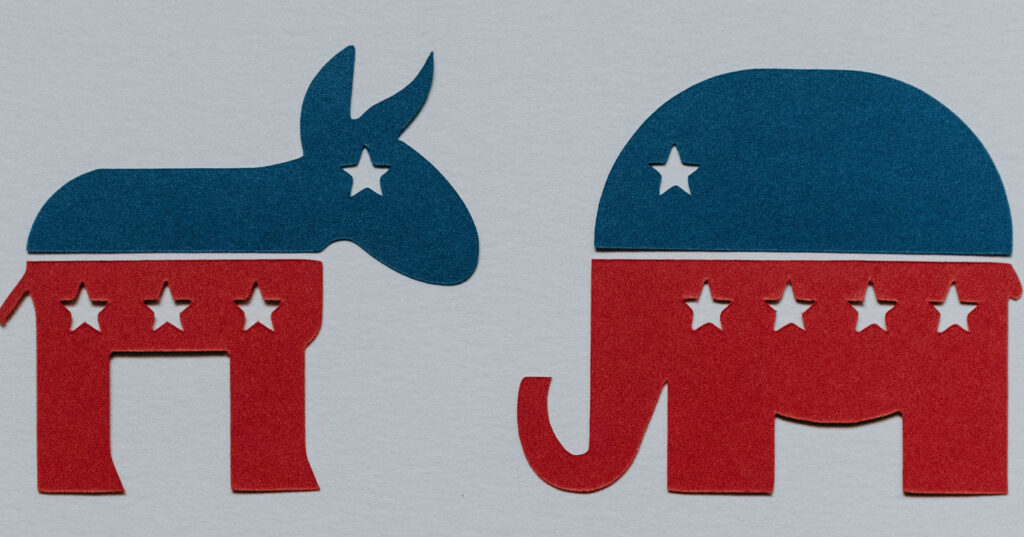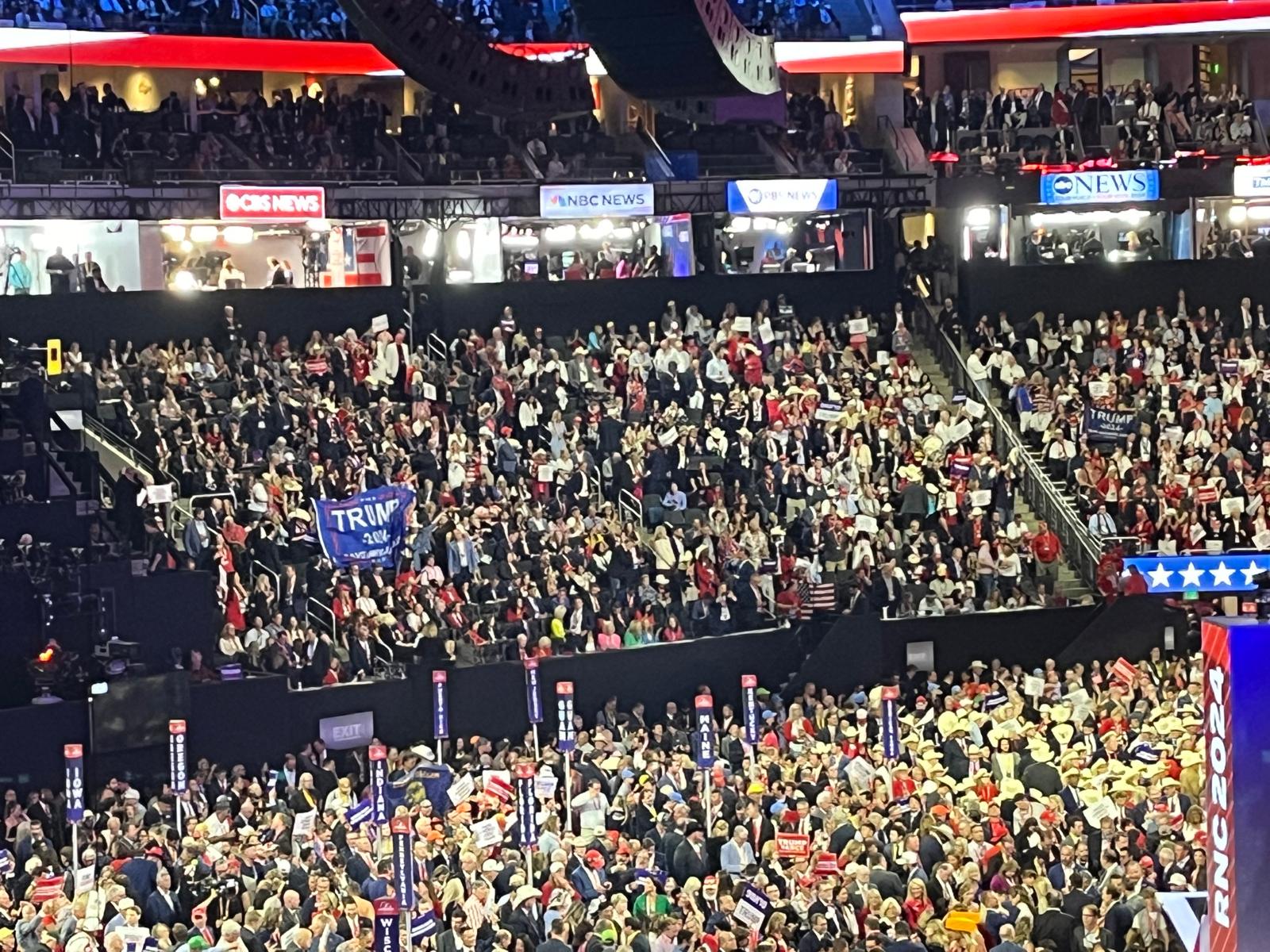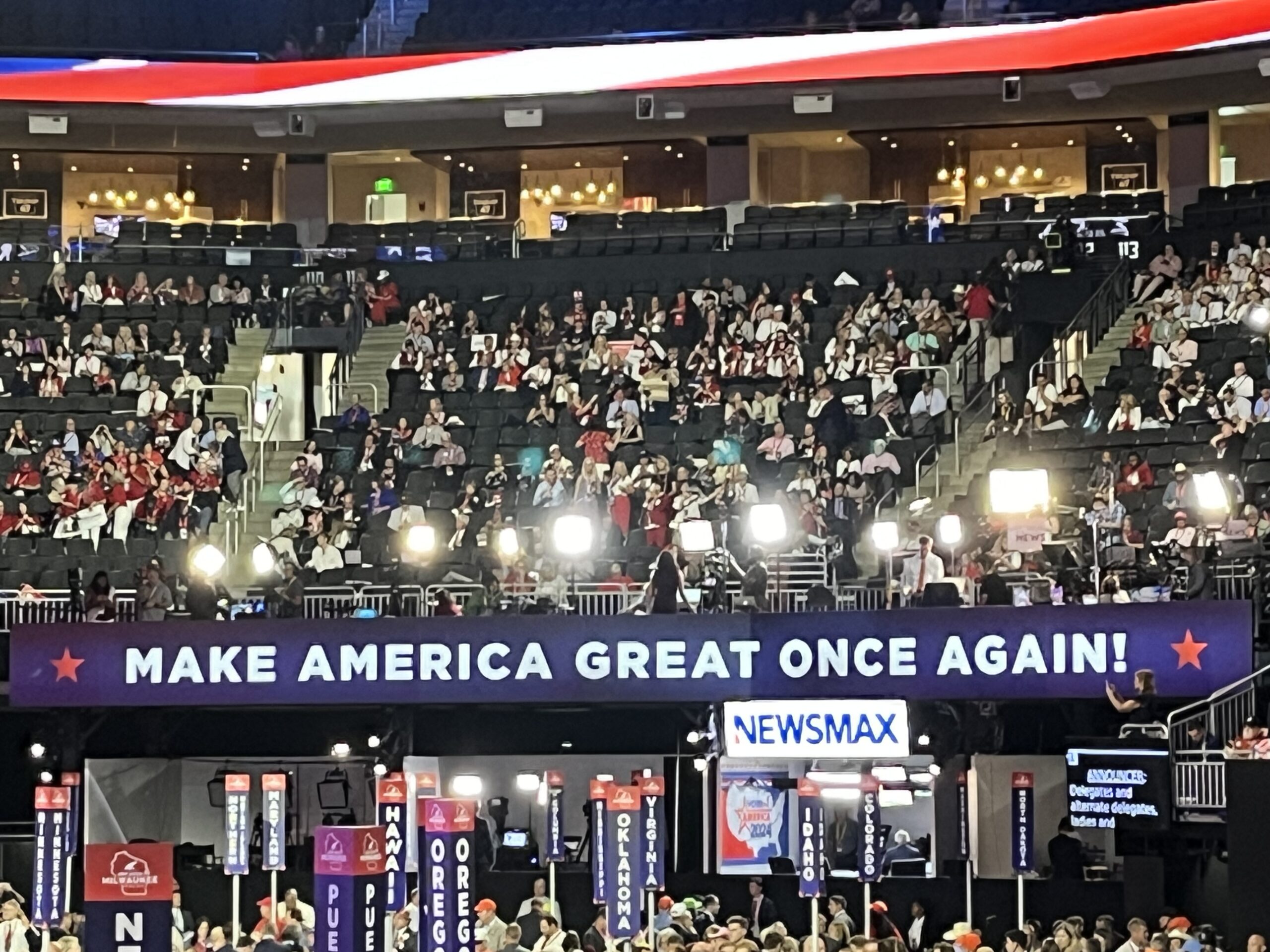
Next month’s midterm elections could change the balance of power in Washington. As before the presidential election two years ago, I’m conducting focus groups in key districts across the United States to listen to real voters as they weigh up their decision: whether to keep the Republicans in full control, or whether to put the Democrats in charge of the House of Representatives and even the Senate. (You can hear what they have to say – as well as the thoughts of the politicians and commentators I am interviewing along the way – in my regular Ashcroft in America podcast). Our tour began in New Hampshire, where we spoke to primary voters from both parties, and New Jersey, where we heard from independents who had backed the Republicans in the last Congressional elections, and people had voted only reluctantly for Donald Trump.
*
Brett Kavanaugh’s confirmation as a Supreme Court justice was the story uppermost in our participants’ minds. Though the Democrats we spoke to had opposed Kavanaugh, and some were worried that the circus surrounding the allegations against him might discourage victims of abuse from coming forward, some were uneasy with the idea of an unproven accusation derailing someone’s career: “You might say yes I believe this woman but if you can’t prove it you can’t throw people under the bus once you throw mud at someone like that.” And though our Republicans felt strongly that Kavanaugh’s confirmation was right, they had more personal sympathy for his accuser than the President appeared to have: “I listened to her and I believe something happened to her that was very traumatic”. But when it came down to it, “in our country, whether Democrat or Republican, or whatever nationality or race you’ve come from you’re innocent till proven guilty. Now there are Congressional members saying you have to prove your innocence. Are you kidding me? I have to prove that I’m innocent! That’s the problem.”
Moreover, if the Republicans had been looking for something to energise their voters ahead of next month’s elections, here it was. While the Democrats already had two years of anti-Trump fervour, “what it did on the red side is took people who don’t like Trump and people who do like Trump who would never come together before and they came together… It went from the political to the moral – it was like a bad thing happening instead of like a political thing happening. And it gives you that bad feeling in your stomach that like something bad is happening to a good person;” “I probably wouldn’t have gone out and voted in the midterm had it hadn’t been for the whole Kavanaugh thing. Now I’ll make sure I go out and vote.”
The Kavanaugh confirmation had combined with the fact that control of Congress hung in the balance to concentrate Republican voters’ minds and remind them of the battle they were in: “We’re no longer Democrat and we’re no longer Republican. We are socialism against conservatism. They’re not even Democrats anymore. They’re really moving toward socialism and it’s not Clinton Democrat, it’s not John F. Kennedy Democrat, it’s scary Democrat.”
Another factor was the possibility of impeachment proceedings against Trump in the event of a Democrat takeover (“it’s actually backfiring because I think it’s making the Republicans even angrier”). But the Democrats we spoke to thought this was unlikely to happen, and did not actually welcome the prospect, given the logical consequence of removing a sitting President: “I don’t think impeaching is practical or even a good idea when you trade Trump for Pence. Pence is scarier than Trump.”
*
For Democrats, it was hard to decide which was worse – what Trump was doing as President, or how he behaved while he was doing it: “They’re pretty neck and neck. So he’s rolling back environmental protections which is going to put us in a bad place… And then you have his boorish behavior which might be amusing to some people but I think to a lot of us it’s repulsive;” “I get worried that the whole shock value is just going to go, and we’ll sort of become numb to some of these things that should have been outrageous. I worry that this idea of normal is going to is going to be different.”
Christine Todd Whitman, the former Governor of New Jersey, had similar worries when I spoke to her before the research: “What I worry about is damage to long term damage that this approach to politics is doing to the country overall and to some of our basic democratic principles. Freedom of the press, independence of the judiciary. Those things are critical to the public’s trust in government and they are being undermined every day by this administration, and that to me is the long term damage that concerns me most.”
Those who had voted for Trump, especially those who had done so reluctantly, often said they consciously separated his actions from his character: “I personally compartmentalize it. I don’t necessarily agree with his personality traits in some way presents himself but he’s getting the job done on a lot of fronts that are affecting America and Americans as a whole for the better;” “I don’t think I care for him as a human being but I do appreciate what he’s done.” This list included – as well as his Supreme Court appointments – tax cuts, the return of American hostages from North Korea, a roaring economy and a booming stock market, and the renegotiation of trade agreements and generally standing up for America in the world: “He’s done more in two years and most of this president’s four year term combined. I mean, whether you like it or not, he gets things done;” “I just wish he would just shut his mouth sometimes, especially in the mornings.”
*
Not everyone in the party agrees, however, and as James Pindell of the Boston Globe told me before the trip, “the question is not will Donald Trump be primaried or have a primary challenger from the Republican side, he probably will. The question is will even be credible. Right now those odds, the conventional wisdom is that he probably will be challenged by somebody and he will probably easily defeat them and still be the Republican nominee.” This chimed with what we heard from the seasoned primary voters of New Hampshire, accustomed to seeing hordes of candidates at close quarters every four years. Some said they might once again back Ohio Governor John Kasich or another of those who stood against Trump two years ago, but there was no yearning to get rid of the President even among those for whom he had been far from the first choice: “I think there are candidates that might align with my view a little bit more, but I remember what happened with Ross Perot and I don’t want that to cost us the White House. So I will be lockstep with Trump again because I don’t want any divisiveness, we’ve got enough already. I don’t want to spoil the party.”
On the other side, the field felt wide open. Pindell’s view was that while Democrats might prefer a more liberal, progressive direction, they were beginning to remember the importance of electability: “these liberals are saying when it comes to Donald Trump I’m not going to take any chances.” This also found some echoes in our groups. Elizabeth Warren might be an “intelligent idealist,” but “I’m not quite sure that’s going to happen. She’s got as many haters as Hillary;” “If they want a woman president, they would have to have a more moderate Democratic position.” The lessons of 2016 had to be learned: “I think the whole reason that Trump won was that people felt that he was representing them, that there was somebody in the White House who actually thought the way they did or spoke the way they did. And I think the Democratic Party needs to realize that people did not want business as usual.” Any suggestions? “I wish Joe Biden would decide that he was willing to do this.”
And if the Democrats did move to the left while the Republicans stayed on their current path under President Trump, where did that leave voters in the middle? “Searching for a home,” according to Christine Todd Whitman. “And if something doesn’t change it is eventually going to get us to a point where you’ll have a third party, or you’ll have an effort to elect a bipartisan ticket – a member of one party as the presidential nominee a member of the other party as the vice president.”


